Terraced rice fields of Yunnan, China
Overall Impressions.
The Yunnan terraced rice fields span a vast area centered around the historic mountain town of Xinjie, (formally Yuangyang Xinjiezhen), and in the Honghe region. The terraces were constructed by hand by the Hani people during the last 1000 years and now cover entire slopes of the southern mountains close to individual villages. They are on massive scale and during the winter months when the fallow fields are filled with water the terraces form irregular glassy patterns which reflect the colour of the sky. Add to this occasional mists which form during February and March and there is the opportunity of seeing truly spectacular vistas at dawn and dusk.
Getting to Xinjie from Kunnming
It is some 300Km from Kunming to Xinjie taking about 6 to 9 hours by road. It can be done by bus or by private vehicle through a chinese travel agent.
Note that there are two towns known as Yuanyang separated by 25km or about 1 hour apart. (1) Yuanyang Xinjiezhen known as Xinjie or as Yuanyang Old Town and (2) Yuanyang Nansha.
By Bus
i) Most popular route: Kunming >> Jianshui >> Yuanyang Xinjiezhen 元阳新街镇
Bus Leaves from Kunnming South Station 南部客运站. Takes about 4 hours to Jianshui and another 3 hours or so to Xinjie. see China Bus Guide
ii) Second route :Kunming >> Gejiu 个旧 >> Yuanyang Nansha 南沙 >> 新街镇 > Xinjie
Bus leaves from Kunnming East Station 东部客运站 It takes 4 hours to Gejiu then 1 hour to Yuanyang Nansha then have to change to local bus to Xinjie 1 hour.
By Private Tour
For the Western tourist this is a great option as the costs are very reasonable and include a driver and guide. (10 days full board at best hotels car etc $US 3500 for 2 persons see China youth travel). Apart from the rice fields there are many interesting traditional villages in the area some holding festivals which can be visited during the remaining period of the day. There is also Jiangshui an interesting town on the route which is worth a stopover.
During the peak season of February-March when the terraced rice fields are flooded and visually stunning, casual accommodation can be very difficult to find and it is safer to book well in advance. Further, the traffic around the terraces can be excessive, leading to long traffic jams. There are not many western tourists here, but there are large numbers of Chinese tourists particularly when it is close to Chinese new year. As a general rule, to obtain a good viewing position at the popular sites you would need to be in place by 4:30 am for a 7:00 sunrise. This implies leaving Xinjie by 3:30-4:00 am not to get caught in traffic. Further most of the sites are within park boundaries whose ticket office at the gates do not open before 5:00 am requiring the guide to book the entry permit the day before.
Jiangshui
Jiangshui is a small city with the remnants of an old wall and gate. We stayed in the historic Zhu Family Garden Hotel with its traditional Chinese architecture and outfitted with classical furniture. It felt like a night in a museum.
Just outside the wall there was a narrow street with houses jumbled together next to a traditional tofu factory and the oldest water well in the region. The tofu factory was a very small establishment manned by a small staff of five. I don’t know if we would eat from there but it had a great atmosphere, being dingy with light streaming from a few light bulbs and steam all around. Down the street was an ancient well, where the locals collected water not only for themselves but also filled trucks with water using the traditional method of two buckets suspended from a pole.
A little further away was the Double Dragon Bridge. A traditional Chinese structure whose image was reflected in the lake.
Xinjie.
Located on top of a mountain ridge at 1570 metres, Xinjie had the ambiance of a small frontier town with an interesting morning market. Stayed at the Yunti hotel, having our meals at the local restaurants. This was our base for the next 6 days to view the rice terraces at both sunrise and sunset. Our daily schedule was to depart Xinjie around 3:40am arriving at Duoyishi by 4:30am, and leaving Xinjie again around 4:0 pm to be at the various rice fields by 4:30pm for a 7:00pm sunset.Leaving Xinjie any later for either sunrise or sunset would not guarantee a good photographic position.
Visiting the Terraced rice fields Around Xinjie
These terraces are on a massive scale and are far more spectacular than those of Bali or Longji near Guilin.
The best time to see the terraces filled with water is mid-February to early March when mists form in the early mornings, and when the skies are clear during the day.
At Duoyishi the platform is packed solid with hundreds of photographers, but no Europeans. The best positions are part way down on the right overlooking the village of Duoyishi.
Good places for sunset are Bada (along the ridge to the right from main platform) Bada at the Malizhai lookout, Laohuzui at Tiger mouth (best at the lower viewing platform) and Longshuba (up the hill).
Interesting Local Villages
i) The Meng Ping Long Table. Meng Ping is a small traditional Yi village located near the Tiger Mouth rice terraces. It hosts a communal eating ritual once per year.
Food is prepared in a communal kitchen while the villagers and any Yi people who don’t reside in the village set out tables along the street. When the food is ready a number of appointed villagers race down the street filling the bowls. On the menu were eggs, pork fat, red beans and some green vegetables. It all looked particularly unappetising. It must have been really bad, for both our guide and driver who were looking forward to the meal, declined to eat the food.
Saturday.
ii) Panzhihua Saturday Markets. This sprawling traditional market is set out beneath an avenue of shade trees and sells all types of goods, from hot food to clothing, to pigs, and ducks and chickens to plastics and machinery. The most popular item however appeared to be the wide brimmed straw hats that shaded the wearer from the sun. People from all over the region attend in traditional costumes. There was an unusual pastime where older men smoked tabacco through 1 metre long bamboo tubes. Panzhihua was the most interesting of the local markets we attended in the region.
The Terraced Ricefields at Honghe
We drove from Xinjie to Honghe, staying in the provincial town of Tongxin, in a hotel located adjacent to the Chinese National Congress. I thought a hotel next to the congress building must be be good, and it certainly was. Five star at least, notwithstanding the hotels three stars rating. The cost of the room shown on the front lobby was $US30. Don’t let that fool you, the rooms were large with curved glass showers doors, and the a la carte food was out of this world. It was some of of the best Chinese food I have ever eaten. Here we had the guide’s aunt as a specialist local guide of the Honghe area – a day’s round-trip. It is an impressive region where the rice terraces were on a massive scale with stunning landscapes and small traditional villages. We only spent one day here on an exploratory visit, but I hope there will be an opportunity in the future to visit this remote region in more depth.
Some Final Observations
It was the end of our trip and on returning to Kunming our guide expressed surprise that we did not get sick. Apparently we were amongst the few Europeans who were so lucky. We drank only bottled water and hot tea. We ate only freshly cooked food which our guide oversaw being cooked. No salads or unpeeled fruit, no garnishing, no cold meats or sweets. And yet the food we ate was very good and plentiful. In fact we had to tell our guide that five Chinese dishes were too much, and that three dishes and a soup was sufficient.


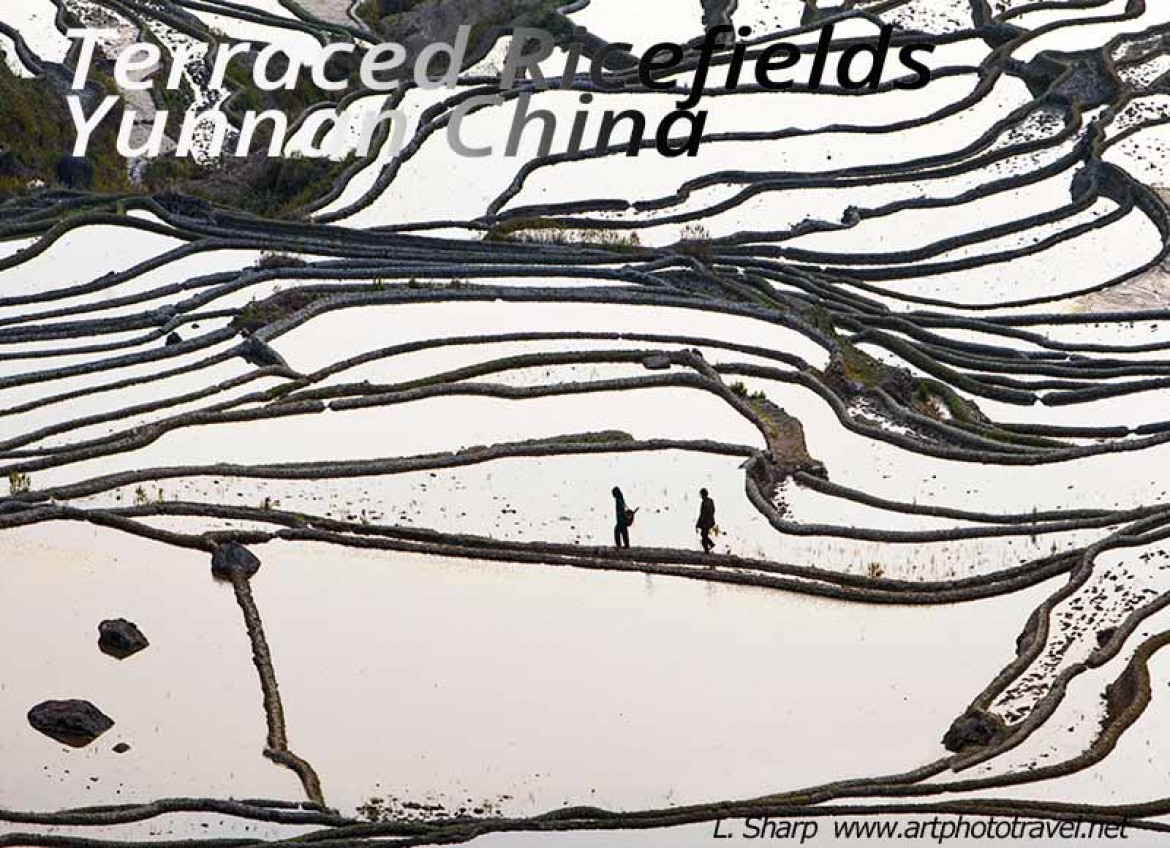
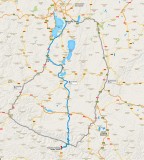
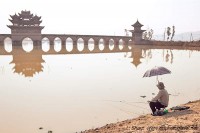
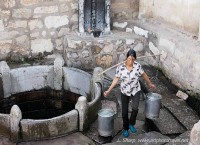
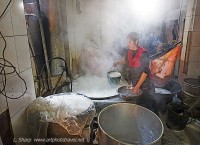
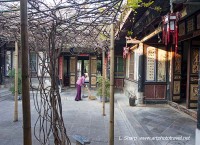
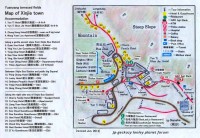
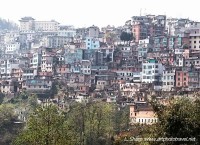
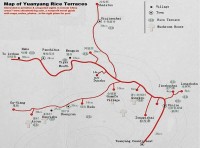
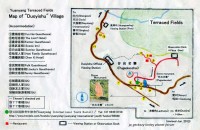
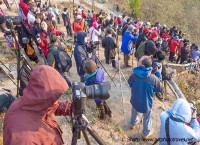
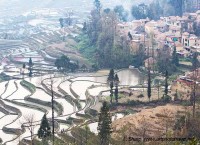
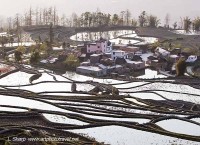
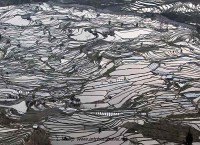
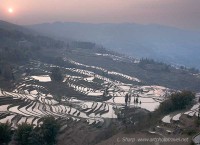
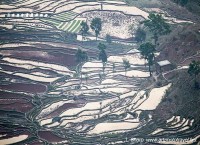
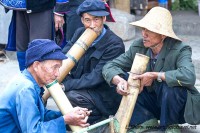
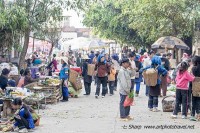
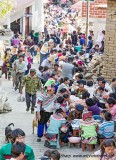
Hi. I see that you don’t update your website too often. I know that
writing content is time consuming and boring. But did you know that there is a tool that allows you to create new articles using existing content (from
article directories or other blogs from your niche)?
And it does it very well. The new posts are unique and pass the
copyscape test. You should try miftolo’s tools